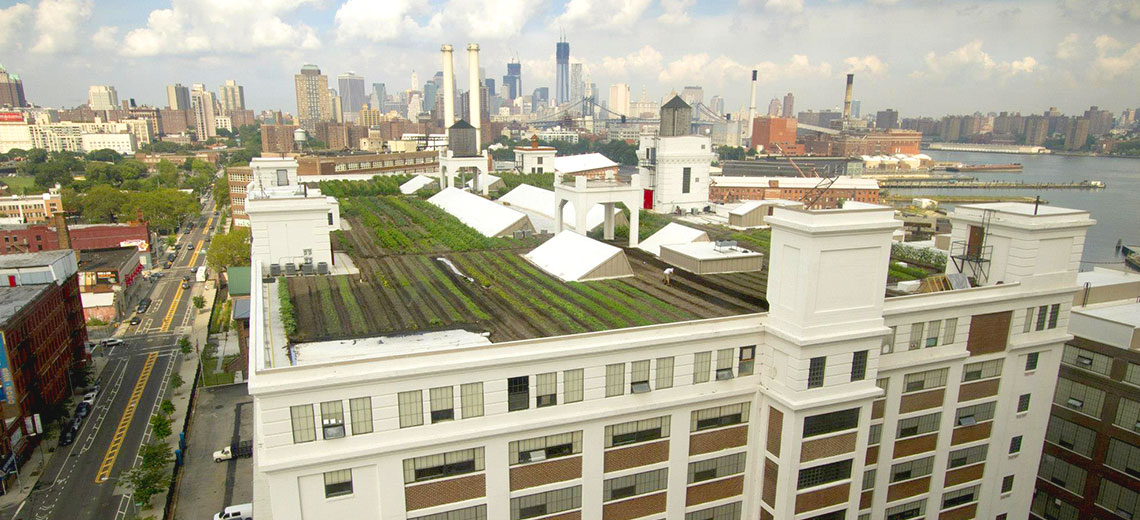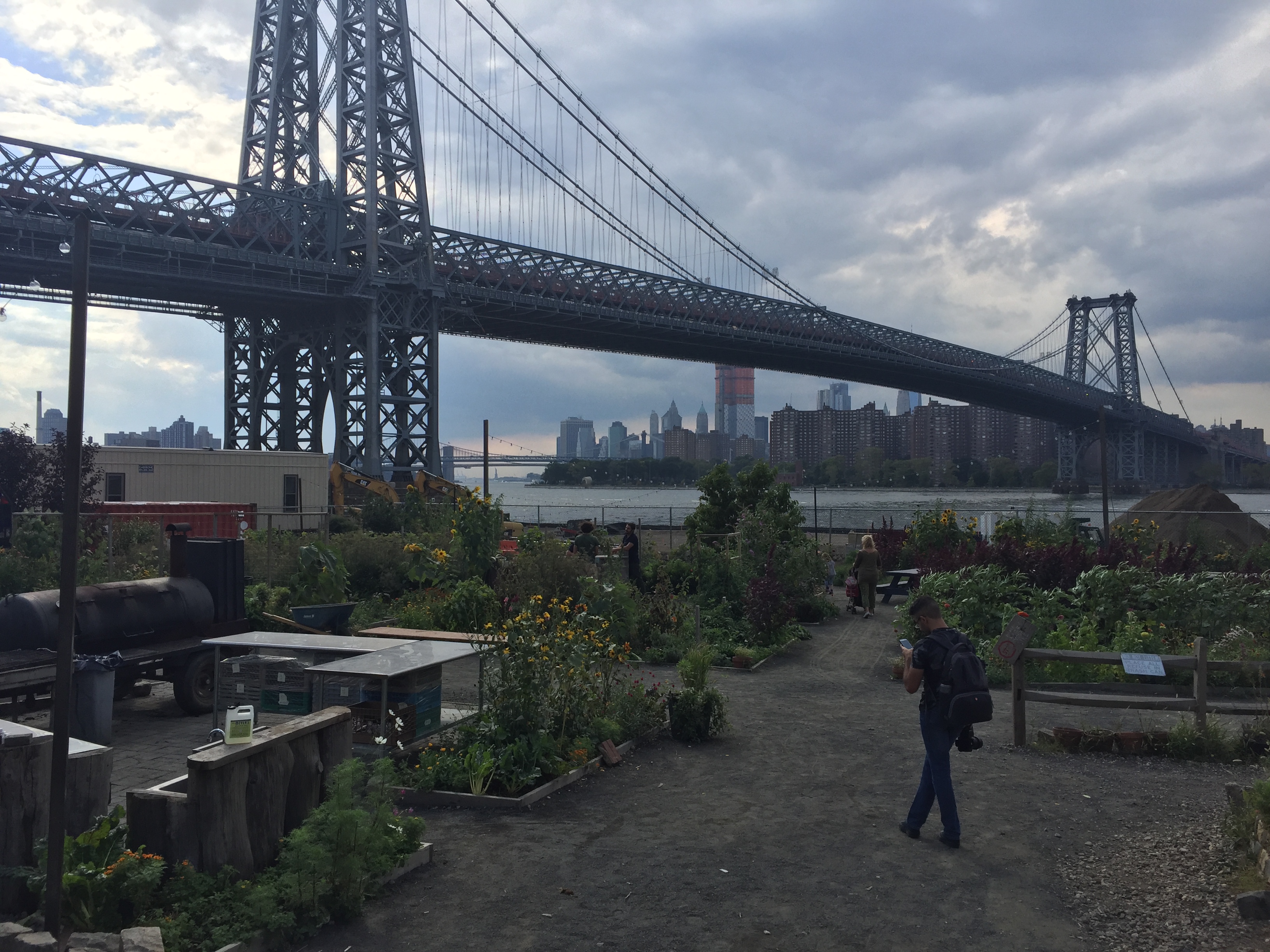Since my last post, my internship has moved from the Manhattan Borough President’s Office to Agritecture. Yes, you are reading that right. It’s a play on agriculture and architecture.

Agritecture is a small company based out of Brooklyn with a mission of integrating agriculture with the built environment. In other words, bringing food production into cities – but in a way that actually integrates the two rather than simply inserting one into the other. There are numerous social, human health, environmental, and economic reasons to do this – and of course some problems with it – but that will have to be for another post.
Agritecture pursues its mission via two primary pathways: By consulting individuals, companies, and organizations globally that are interested in starting up urban farms, and by progressing urban agriculture at large with educational events and informative blog posts.
Finding my role
Beginning my time at Agritecture, I really didn’t know what to expect in terms of what my daily duties would entail. I thought I’d likely be helping out with some consulting projects, and doing policy-based research.
Well, it seems like I was a little naïve about the consulting work. Although I have helped out here and there, the team members who actually consult each have a unique wealth of experience and knowledge when it comes to growing plants in cities. My expertise, it turns out, were a lot more needed on the other side of things.

As soon as I starting working, there was much to be done in preparation for NYC AgTech Week 2017 – a week of non-stop workshops, panels, farm tours and more across New York City that Agritecture is heavily involved with. I was emailing prospective participants, planning our events, and even got to help our managing director write and design his major presentation (using my recently acquired presentation and communication skills, of course!). Since that time, I have also taken over managing our Agritecture Blog, ensuring that relevant and important content reaches our 30,000+ followers every week.
Urban ag policy
Although I didn’t end up doing much consulting, I did accurately predict my involvement in policy. I did not, however, realize just how relevant my policy work would be. As it turns out, New York City is in the middle of an intense urban agriculture policy struggle as a wide array of stakeholders attempt to steer the ship forward.
You see, many cities around the US and indeed the world have been updating their codes and modifying their frameworks to promote the urban agriculture movement and position themselves at the forefront of urban resilience and sustainability. But New York City, despite its world-class urban agriculture private sphere, has done almost nothing from a policy perspective in recent years to propel the movement – from community-based farms to commercial operations.

Change, however, seems to be approaching, albeit somewhat reluctantly. When I began at Agritecture, a bill had already been introduced in the City Council that called for the city to create a Comprehensive Urban Agriculture Plan. When it came time for the Bill’s first hearing, I helped research our position and draft our formal statement. The hearing itself was packed with supporters who all hailed this as an important step in the right direction. But due to internal city politics, the bill never made it to a floor vote. Instead, it was swapped out for a simpler law that asks only for the creation of a city website “to promote the expansion of urban agriculture.” Now, as I continue with Agritecture on a part-time basis, my role will be to help Agritecture and our affiliates continue to push the city in the right direction.
A takeaway
There’s no doubt that the CEP coursework helped prepare me in many ways for my role at Agritecture. I research multidisciplinary information, and write in different styles to unique audiences. I work alone and I work in teams, all with separate deadlines that force you to prioritize constantly. When I reflect on each day, I can pinpoint how a certain class or assignment helped prepare me for the task at hand.
However, I think the internship was about much more than just putting my skills to the test. For me, the largest benefit of the internship was being able to immerse myself in an entirely new field. I’ve always been highly interested in food policy, but being involved everyday with a company that focuses uniquely on urban agriculture has allowed me to dive deeper into a subject than I probably ever have before.
Now, I hope to continue this exploration even further as I write my thesis on urban agriculture policies and politics within cities around the US.
